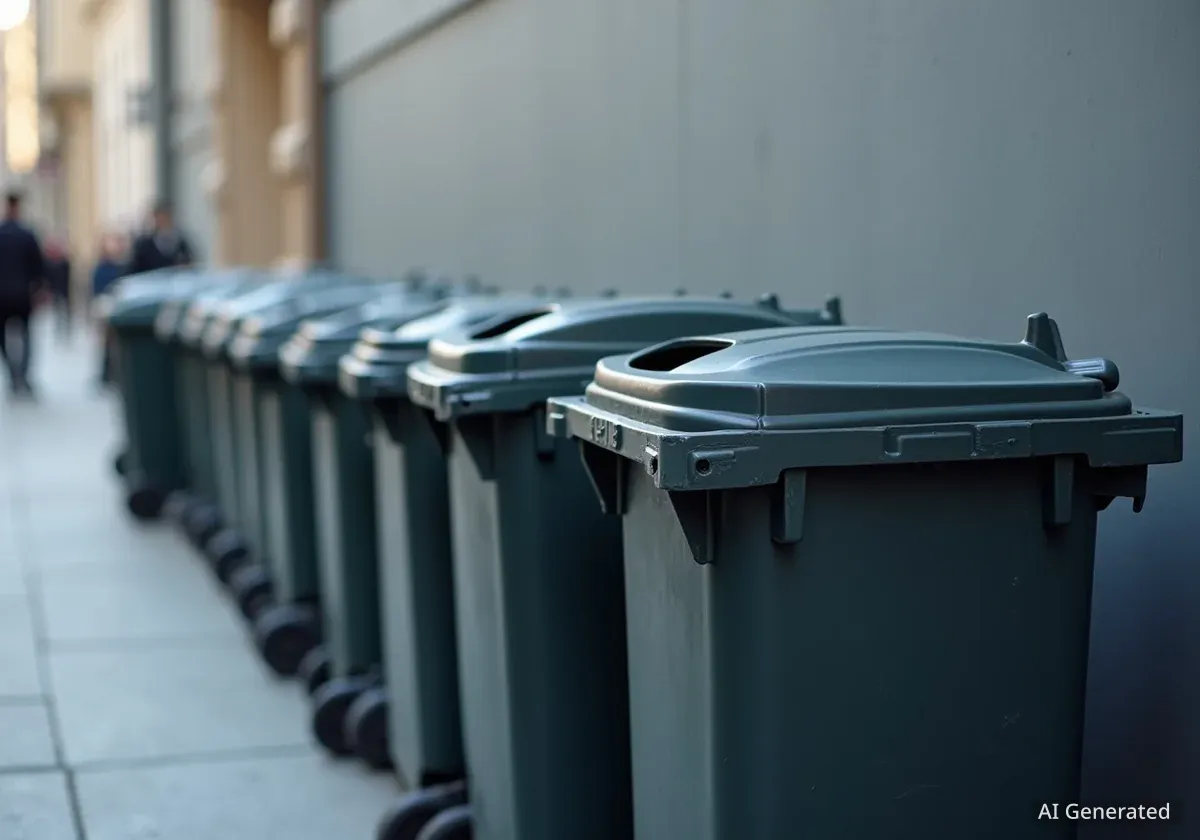The City of Bern has decided to discontinue its plan for a city-wide waste separation system using colored bags. This decision comes after the city council determined the system would not be economically viable. Despite this change, the mandate for property owners to use waste containers will proceed, focusing on areas where space and legal conditions allow.
Key Takeaways
- Bern scraps colored bag waste separation due to economic and ecological concerns.
- Container mandate for property owners will still be implemented where feasible.
- Containers improve worker health, prevent animal interference, and offer residents daily disposal options.
- Pilot phase begins in Mattenhof-Weissenbühl, with other districts to follow.
- City Parliament must now approve this adjusted plan, despite a 2021 public vote for both systems.
Bern City Council Explains Decision
The Bern City Council has officially withdrawn its controversial proposal for a city-wide colored bag waste separation system. This system aimed to sort waste using different colored bags for various materials. However, a thorough review revealed significant drawbacks.
According to the city government, both economic and ecological factors spoke against continuing with the colored bag system. The council concluded that such a separation method could not operate efficiently or cost-effectively across the entire city.
Important Fact
The initial public vote in 2021 approved both the container mandate and the colored bag system. The city's current decision represents a significant adjustment to the voter-approved plan.
Container Mandate Remains for Health and Convenience
Despite dropping the colored bag plan, the City of Bern is moving forward with the container mandate for property owners. This requirement applies specifically to locations where sufficient space is available and no legal obstacles exist. This commitment is driven by several key benefits.
"The container mandate is important, also because it concerns the health of the loaders," stated City Council member Matthias Aebischer. He emphasized the physical demands placed on waste collection workers.
Containers significantly reduce the physical strain on waste collection personnel. They eliminate the need for workers to lift each individual waste bag. This change helps protect their backs and improves overall working conditions. The new system also offers greater convenience for residents.
Background Information
For many years, waste collection in Bern has relied on residents placing individual bags on the street. This method has led to issues such as bags being torn open by animals and posing a greater physical burden on collection teams.
Addressing Challenges with Waste Collection
The introduction of waste containers directly addresses several long-standing problems. One major issue is the scattering of plastic bags by animals. Birds, foxes, and other wildlife often tear open garbage bags left on the street, spreading waste and creating litter.
Containers provide a secure, enclosed space for waste, preventing animals from accessing it. This helps keep public spaces cleaner and reduces the need for additional cleanup efforts. Furthermore, containers offer increased flexibility for residents.
"And not least, it is also more comfortable for the population," Aebischer added. The container system allows residents to dispose of their waste any day and around the clock. This flexibility is a significant improvement over scheduled curb-side bag collection.
Implementation Timeline and Next Steps
The implementation of the container mandate will occur in phases. The first phase will target property owners in the Mattenhof-Weissenbühl district. These property owners will receive free waste containers from the city.
Following the initial rollout, other city districts will gradually implement the container system. The specific timeline for these subsequent phases has not yet been fully detailed. The city aims for a smooth transition to the new method of waste disposal.
Parliamentary Approval Required
The public voted in favor of both the container mandate and the colored bag system in 2021. However, the city council's decision to drop the colored bag component means the adjusted plan must now return to the City Parliament, also known as the Stadtrat.
The Parliament will need to review and approve this modified version of the waste management concept. This step ensures democratic oversight of the city's waste disposal strategy. The process highlights the complexities involved in implementing large-scale urban infrastructure projects.
Benefits of the New System
The shift to a container-based system offers multiple advantages beyond worker health and animal control. It promotes a more organized and aesthetically pleasing urban environment. Streets will no longer be cluttered with numerous individual trash bags.
Moreover, modern waste containers often feature mechanisms that can be more easily integrated with automated collection vehicles. This potentially increases the efficiency of waste collection routes and reduces operational costs in the long term.
- Improved Worker Safety: Reduces heavy lifting and repetitive strain injuries.
- Cleaner Streets: Prevents animals from tearing open bags and scattering waste.
- Resident Convenience: Allows for flexible, 24/7 waste disposal.
- Better Aesthetics: Contributes to a tidier urban landscape.
- Potential for Automation: Facilitates more efficient collection processes.
The city's decision reflects a pragmatic approach to waste management. It prioritizes practical implementation, economic feasibility, and the well-being of both residents and workers. This strategic adjustment aims to create a sustainable and effective waste disposal system for Bern.




